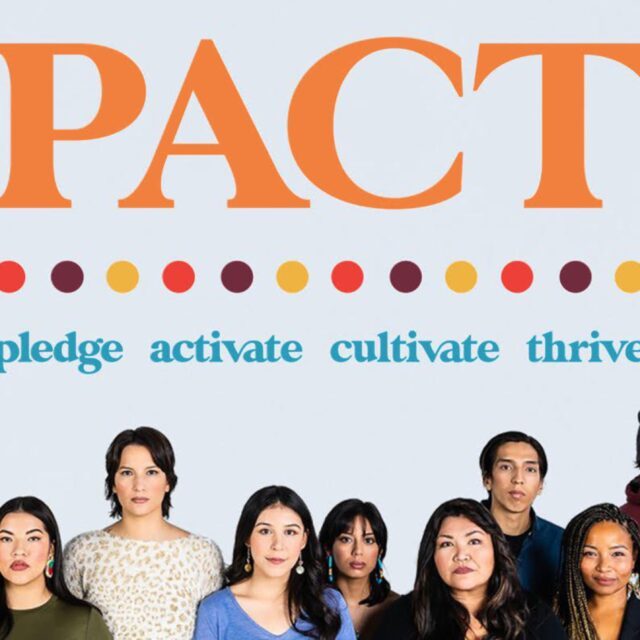PACT
Explore
- Event DateOctober 6, 2023
- TimeAll Day
- TypeVirtual
- Event Linklearnatshine.ca
About PACT
PACT (Pledge-Activate-Cultivate-Thrive)
North America’s first free online Indigenous cultural competency course for the screen sector, designed to prepare non-Indigenous stakeholders for working with Indigenous productions and content. The National Screen Institute and The Shine Network Institute have partnered to build the course with funding from the Department for Women and Gender Equality (WAGE).
Spearheaded by industry veteran Jennifer Podemski, founder and CEO of The Shine Network Institute, PACT has a fixed purpose of improving outcomes for Indigenous people by creating more culturally informed spaces and empowering non-Indigenous creators with the tools, resources and best practices that align with Indigenous values and ways of knowing.
If you work in the screen sector and your production involves Indigenous subject matter and/or you work with Indigenous Peoples, you are strongly encouraged to take the course. This includes unions, guilds, broadcasters, production executives, production companies, showrunners, directors and producers.
“PACT provides an opportunity to create safer spaces for Indigenous peoples,” says Jennifer Podemski. “By embracing anti-racism principles and demonstrating humility and respect, you can foster an environment where your team can thrive. Your participation in this course represents a step towards reconciliation and is a building block to a future that is equitable, inclusive and Indigenous informed.”
National Screen Institute CEO Joy Loewen confesses, “It’s not easy to admit what we don’t know. Nor is it easy to accept that what we don’t know is causing harm and perpetrating harms of past generations. Our partnership with Jennifer Podemski and The Shine Network Institute to create PACT is a sincere act of reconciliation and an offering to all industry members to become better informed about unconscious bias. By knowing more, we will create safer and more equitable workplaces.”
Christina Fon, vice president of strategic partnerships and scripted content at Shaftesbury said, "This is a ‘must take’ for anyone working in the screen industry in North America! As an ally working as an executive producer for the past 20 years, PACT is long overdue. It should be mandatory for all EPs in this space.”
The free online PACT course is available now in both French and English at https://learnatshine.ca/. Sign up is required.
Upon completion of the course, participants are asked to make a pledge and will receive a certificate and badge.
• • •
About The Shine Network Institute
The Shine Network Institute is an Indigenous owned and operated not-for-profit organization offering professional development, advocacy, consulting and mentorship for Indigenous women in the film, television and media sector.
Committed to dismantling systemic and structural barriers Indigenous women face in the screen sector while empowering Indigenous women to harness their potential and thrive.
“We must uplift, protect and celebrate the voices and perspectives of Indigenous women. There are too few of us working behind and in front of the camera. Those you read about are doing incredible and important work yet represent less than 1 per cent of Canadian content creators receiving funding. When that changes we will witness a monumental shift in our collective narrative and we will all be better for it.” Jennifer Podemski, Founder and CEO.
About the National Screen Institute
Propelled by a visionary network of donors, private and public organizations, board members and staff, the National Screen Institute supports creators from across Canada to tell unforgettable stories. Through industry-informed training and mentoring in film and television, students and alumni find their voice and place on the global stage, inspiring us to shape a better world.
The National Screen Institute is committed to training participants from a diverse community of voices including Black, Indigenous, People of Colour, women, lesbian, gay, bisexual, transgender, queer or questioning and two-spirit (LGBTQ2S+), people with disabilities, those outside large urban centres, those in regional and remote areas and various religious groups.
Learn More